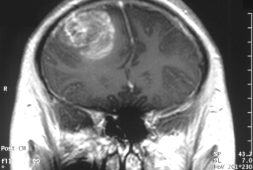
Cancer has killed millions of people worldwide. For many, this is the bane of their existence. When they hear the C word, they oftentimes think that this spells the end of their lives. Then, there are those that have successfully beat cancer. It all really depends on the type of treatment available and just how aggressive the tumor is.
Hope may be on the way because a personalized mRNA vaccine that is given to patients with certain types of aggressive cancers could provide anchorage to the immune system of the patient. This leverage helps kill the cancer on its own. This new form of treatment has brought in doors to a new era of treatment for cancer.
Messenger RNA (ribonucleic acid) vaccines started the COVID-19 vaccine drives. Companies such as Pfizer and Moderna adapted the technology, and this was their answer to the emergency treatment needed to train the body to fight off the viral spike protein.
Many of us weren’t aware of the fact that this wasn’t a new type of technology. These mRNA vaccines were already in development to treat the aggressive types of cancer. Molly Cassidy, a mother who was studying for the Arizona Bar exam, is living proof of this. While this isn’t what’s norm, the vaccine can help clear away some of the most dreadful and fast cancers that have struck men and woman alike.
She was first diagnosed with head and neck cancer. Soon after they broke the difficult news, she went through surgery and the usual rounds of chemotherapy. However, after only ten days of the last chemo, she found another marble-like bump on her collarbone. This was the sign of the cancer’s relentless comeback. Later tests revealed that it had already spread from her ear all the way down to her lungs. This wasn’t a good sign and the doctors immediately advised her to get her affairs in order. This was very much tantamount to getting hit by a large truck.
Cassidy felt hopeless until she was told that she was eligible to join a clinical trial. This was to be held at the University of Arizona. The scientists have been testing an mRNA vaccine personalized to the cancer mutations of its host. At the end of 27 weeks, Cassidy had been a recipient of nine vaccine doses that were paired with an immunotherapy drug. They checked her body’s response and the CT scans revealed that it had all cleared out and that the cancer had left her body.
Personalized Kind of Medicine
A personalized approach to treatment of the disease is challenging for the doctors. However, it could be somewhat assumed that the increase of cancer and of so many other diseases across the west is a byproduct of the wider sector of Western-health adopting a once-size fits all (or one-pill fits all) approach to most diseases, bet it with cancer, diet, or mental health.
The good news is that precision or personalized medicine is becoming more and more popular nowadays. In fact, several functional medicine clinics are paying more attention to genetic phenotypes and other biomarkers before creating a therapy plan for their patients. This novel approach recently broke ground in an impactful way, especially when it comes to treating Alzheimer’s. In fact, the USDA is making use of artificial intelligence that bases makes more accurate and specific dietary guidelines based on demographics and other specified information.
These so-called tailor-made mRNA vaccines are hopeful versions of personalized medicine, especially when it comes to the treatment of cancer. It first begins with taking a tissue sample from the patient’s tumor and analyzing it for signs of mutations. This method hones the immune system into the cancerous cells as well as differentiates them from the surrounding healthy, non-cancerous cells. What happens after is that the messenger RNA begins to make proteins shed from the exterior of the tumor and brings immune cells like T cells up to speed to speed in order to fight it.
“One of the things cancer does is it can turn on signals to tell the immune system to quiet down so the cancer is not detected,” explained Daniel Anderson, a biotech scientist at MIT, when he spoke to National Geographic about it. He further expounded, “The goal of an mRNA vaccine is to alert and gear up the immune system to go after the characteristic features of tumor cells and attack them.”
At this point in time, phase-one clinical trials are gunning for metastatic melanoma, GI-tract cancer, colorectal cancer, pancreatic and ovarian cancer, and non-small cell lung cancer. An exciting piece of information is that even in these early days of mRNA cancer vaccines, they have the potential to offer a chance at survival for the advanced and incurable types of cancers. More importantly, everything looks promising as these seem to become effective. This is the hope for patients like Cassidy, especially if they don’t have other options to turn to.
In the future, scientists and researchers see that the personalized mRNA vaccines will be paired with immune checkpoint therapy when used. This is a breakthrough class of treatment that won the Nobel Prize in 2018. This is actually very similar to stem cell treatment wherein a patient’s T cells are drawn out before these are shipped to the lab for multiplication, trained to target the cancer cell, and then reintroduced to help fight off the cancer that’s been attacking the body.
The animal studies made for this have had success. They segregated the rats with one group fighting off triple-negative breast cancer. As for the other group, they have shown great success against cancer of the lymph nodes. National Geographic has featured mRNA vaccines, and they suggested that based on early success, FDA-approval could be given to the treatment in five years’ time. While five years seems far away, leaps have been made and this could be the very answer to the cancer dilemma that millions of people face.



